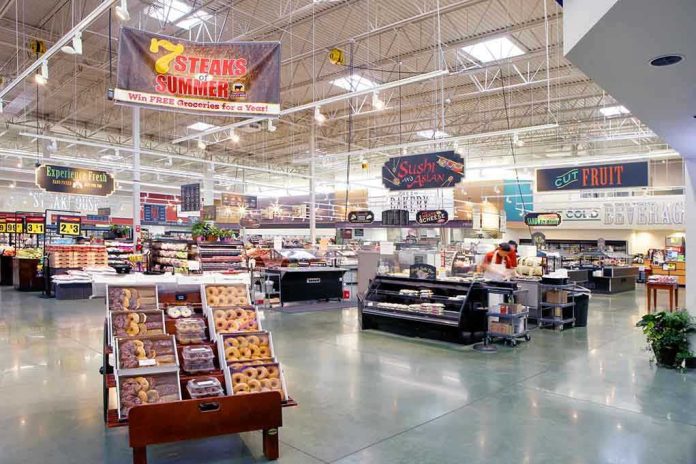
The narrative claiming Seattle’s new mayor has gone “full communist” by preventing grocery store closures is a fabricated tale detached from reality.
Story Overview
- No socialist mayor in Seattle; Katie Wilson is a centrist Democrat.
- Grocery store closures driven by corporate decisions, not government intervention.
- City officials respond with legislative measures to support food access.
- Community advocates and unions push against closures impacting food security.
Grocery Store Closures in Seattle
In 2025, Seattle faced the closure of several major grocery stores, including Fred Meyer outlets owned by Kroger. The company attributed these closures to rising theft, regulatory costs, and low sales. This situation sparked fears of creating “food deserts” in areas with limited access to affordable and nutritious food. The closures coincided with the failed merger between Kroger and Albertsons, adding complexity to Seattle’s retail landscape.
Community and union outcry followed the closure announcements. Residents and workers voiced concerns over job losses and the impact on food access in their neighborhoods. Seattle’s local government, led by Mayor Katie Wilson, took legislative and budgetary actions to address these concerns, focusing on food insecurity rather than forcing private businesses to stay open.
Seattle’s Legislative Response
The Seattle City Council passed emergency legislation allowing new grocery stores to replace those that shuttered. They also banned anti-competitive covenants that could prevent new grocery or pharmacy tenants. Mayor Harrell proposed an additional $12 million in funding to combat food insecurity and extended the Lake City Farmers Market. These measures aimed to address the immediate impact of closures and prevent the development of food deserts.
The city government’s approach underscores a commitment to food access without overriding private enterprise decisions. Officials balanced support for affected communities with respect for business autonomy, aligning with broader urban governance strategies.
Seattle's New Socialist Mayor Goes Full Communist, Says She Won't Allow Private Grocery Stores To Close https://t.co/AGSeRpAFlV
— Dawn Wildman (@WildmanDawn) November 13, 2025
Implications for the Community
The immediate effects of grocery store closures include increased demand on food banks and social services as residents scramble to access affordable food. Job losses for hundreds of grocery workers add to the economic strain. Long-term, the risk of persistent food deserts looms if new stores do not fill the void. This situation places ongoing pressure on city policies to support grocery access and neighborhood vitality.
Residents in low-income and mobility-impaired communities face the brunt of these changes, further highlighting socioeconomic disparities. The closures also affect local businesses and neighborhood economies due to reduced foot traffic and consumer spending.
Corporate and Community Dynamics
Corporate decisions by Kroger primarily drive the store closures, with city and state officials having limited power to prevent such actions but able to legislate around land use and food access. Unions and community groups play a crucial role in advocating for worker and community rights, urging policy changes and increased support for affected areas.
Industry analysts point to broader retail trends and low sales as significant factors in store closures, rather than local policies. The situation in Seattle highlights the challenges of urban grocery retail and raises questions about the impact of corporate consolidation on community food access.




